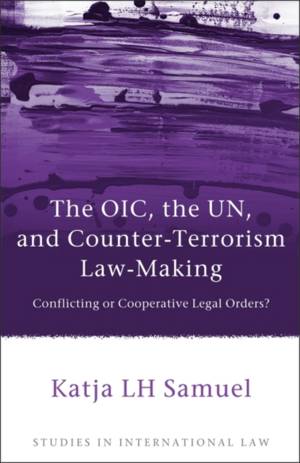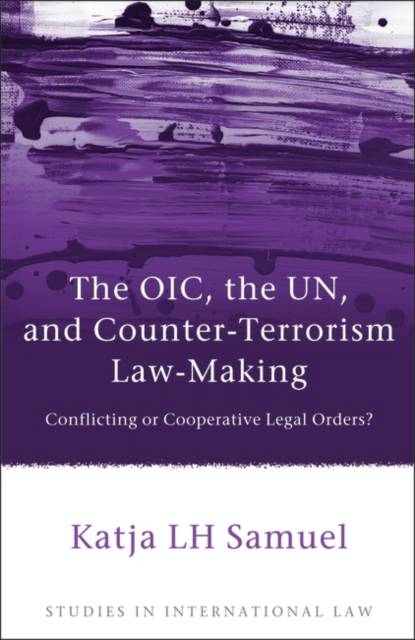
- Afhalen na 1 uur in een winkel met voorraad
- Gratis thuislevering in België vanaf € 30
- Ruim aanbod met 7 miljoen producten
- Afhalen na 1 uur in een winkel met voorraad
- Gratis thuislevering in België vanaf € 30
- Ruim aanbod met 7 miljoen producten
Zoeken
The Oic, the Un, and Counter-Terrorism Law-Making
Conflicting or Cooperative Legal Orders?
Katja Samuel
€ 198,95
+ 397 punten
Omschrijving
The increasingly transnational nature of terrorist activities compels the international community to strengthen the legal framework in which counter-terrorism activities should occur at every level, including that of intergovernmental organizations.
This unique, timely, and carefully researched monograph examines one such important yet generally under-researched and poorly understood intergovernmental organization, the Organization of Islamic Cooperation ('OIC', formerly the Organization of the Islamic Conference). In particular, it analyses in depth its institutional counter-terrorism law-making practice, and the relationship between resultant OIC law and comparable UN norms in furtherance of UN Global Counter-Terrorism Stategy goals. Furthermore, it explores two common (mis)assumptions regarding the OIC, namely whether its internal institutional weaknesses mean that its law-making practice is inconsequential at the intergovernmental level; and whether its self-declared Islamic objectives and nature are irrelevant to its institutional practice or are instead reflected within OIC law. Where significant normative tensions are discerned between OIC law and UN law, the monograph explores not only whether these may be explicable, at least in part, by the OIC's Islamic nature, and objectives, but also whether their corresponding institutional legal orders are conflicting or cooperative in nature, and the resultant implications of these findings for international counter-terrorism law- and policy-making. This monograph is expected to appeal especially to national and intergovernmental counter-terrorism practitioners and policy-makers, as well as to scholars concerned with the interaction between international and Islamic law norms. From the Foreword by Professor Ben Saul, The University of SydneyDr Samuels book must be commended as an original and insightful contribution to international legal scholarship on the OIC, Islamic law, international law, and counter-terrorism. It fills significant gaps in legal knowledge about the vast investment of international and regional effort that has gone into the global counter-terrorism enterprise over many decades, and which accelerated markedly after 9/11. The scope of the book is ambitious, its subject matter is complex, and its sources are many and diverse. Dr Samuel has deployed an appropriate theoretical and empirical methodology, harnessed an intricate knowledge of the field, and brought a balanced judgement to bear, to bring these issues to life.
Specificaties
Betrokkenen
- Auteur(s):
- Uitgeverij:
Inhoud
- Aantal bladzijden:
- 618
- Taal:
- Engels
- Reeks:
- Reeksnummer:
- nr. 48
Eigenschappen
- Productcode (EAN):
- 9781849462679
- Verschijningsdatum:
- 1/11/2013
- Uitvoering:
- Hardcover
- Formaat:
- Genaaid
- Afmetingen:
- 163 mm x 236 mm
- Gewicht:
- 1065 g

Alleen bij Standaard Boekhandel
+ 397 punten op je klantenkaart van Standaard Boekhandel
Beoordelingen
We publiceren alleen reviews die voldoen aan de voorwaarden voor reviews. Bekijk onze voorwaarden voor reviews.











